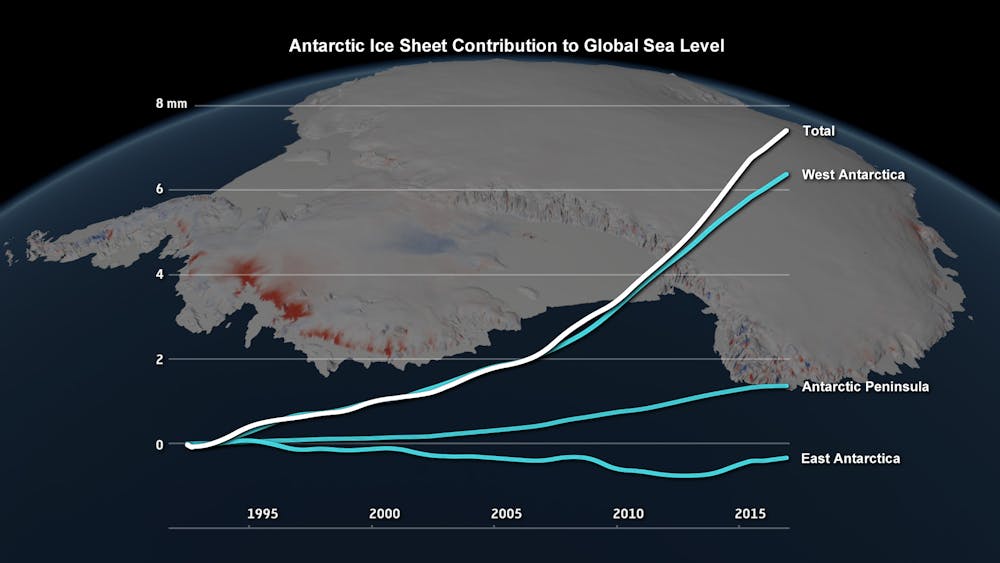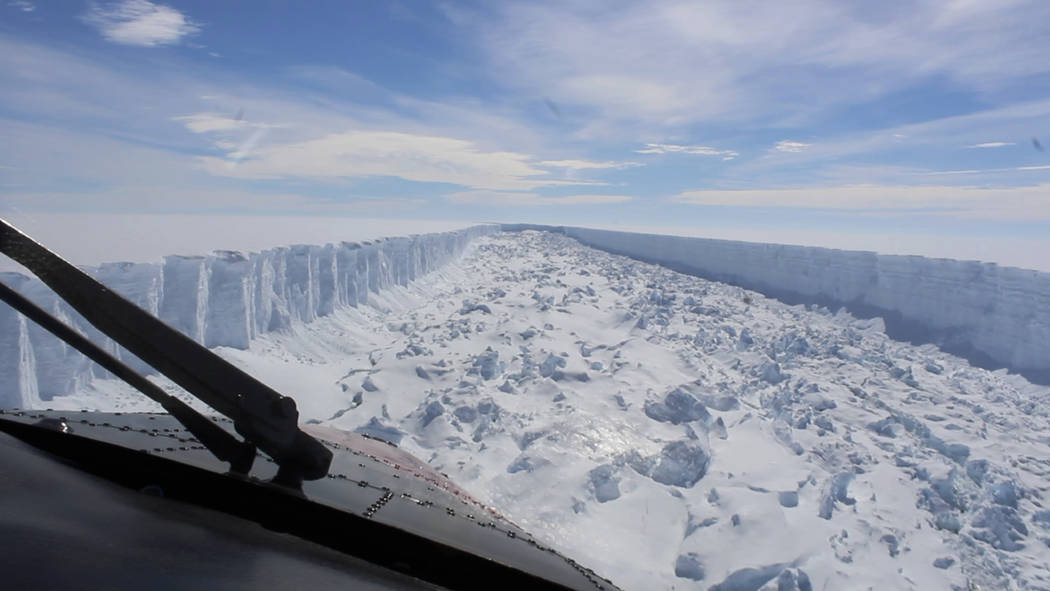In the last 25 years the antarctica has lost around 3 trillion ton of ice in 2017 we saw the larsen s iceberg loosening from the mainland which was almost the size of jamaica

In the last 25 years, Antarctica has lost around 3 trillion tons of ice.

Antarctica, the frozen continent located at the southernmost tip of the globe, is experiencing a significant loss of ice. In the past 25 years alone, approximately 3 trillion tons of ice have been lost from this vast icy landscape. This revelation brings forth grave concerns about the impact of climate change on our planet.
The Larsen S iceberg, which detached from the Antarctic mainland in 2017, serves as a stark reminder of the alarming rate at which this ice loss is occurring. This massive iceberg, nearly the size of Jamaica, weighed over a trillion tons. Its separation from the mainland illustrates the vulnerability of the icy continent and the potential consequences it may face in the future.

The scientific community has been closely monitoring the ice loss in Antarctica for many years. These latest measurements indicate an acceleration in the rate at which the continent is losing ice. The consequences of this phenomenon are far-reaching, impacting the global climate, sea levels, and delicate ecosystems.
The primary cause of Antarctica’s ice loss is the rising temperatures resulting from climate change. As greenhouse gases, such as carbon dioxide, accumulate in the atmosphere, they trap heat and contribute to the warming of the planet. Antarctica, being one of the coldest places on Earth, is not immune to these changes. The rising temperatures have triggered the melting of massive ice sheets, resulting in the release of tremendous amounts of water into the surrounding seas.
The implications of this ice loss extend beyond Antarctica itself. As the ice melts and flows into the ocean, it raises the global sea levels. Low-lying coastal areas are particularly vulnerable to this rise, putting millions of people at risk of displacement and increased flooding. Continuously melting ice also affects ocean currents, disrupting marine ecosystems and leading to potential changes in weather patterns across the globe.
Efforts are being made to understand the intricate processes behind ice loss and its ramifications. Scientists are utilizing advanced technologies and monitoring systems to gather essential data and predict future changes accurately. These findings are crucial for policymakers and global communities to develop strategies and take prompt actions to mitigate the consequences of climate change.
The loss of ice in Antarctica serves as a dire warning, urging us to address the root causes of climate change and take immediate action. The fate of our planet depends upon our ability to come together and implement sustainable practices that protect these fragile ecosystems.
Source: Scientific American
Related Posts
Quick Links
Legal Stuff

